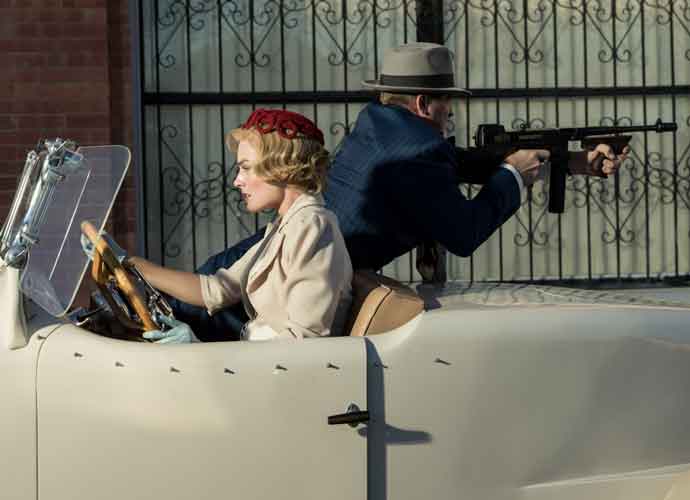‘Dreamland’ Movie Review: Margot Robbie Can’t Deliver In Tale Of Cops & Robbers

2.5/5
Everyone loves a good Bonnie & Clyde tale – there’s something timeless about the stifled heroine getting whisked away into a liberating, if ethically fraught, life of crime. Because we’re two decades into the 21st century, director Miles Joris-Peyrafitte has seen to tell his own version of the tale with a unique swap on the gender roles at play with Dreamland.
The film stars up-and-comers Finn Cole as Eugene Evans, a young member of a homesteading family during the Great Depression. His mundane life is given one hell of a monkey wrench with the arrival of Allison Welles, played my Margot Robbie, the only surviving half of an infamous bank-robbing duo.
Much of the film centers on the relationship between Eugene and Allison as the former nurses the latter’s bullet wound and an improbably fast bond builds betwixt the two. There are some contrived moments of tension wherein Allison is on the verge of being discovered by Eugene’s family or something similar, but they are obvious and largely unsuccessful attempts to ratchet up tension during down moments.
The dynamic between Eugene and Allison is not a pleasant one: Robbie’s charisma and dynamism as an actor leaves Cole perpetually outshined, never able to convincingly sell his role the way Robbie does hers. Neither is helped by a fantastically romanticized understanding of how normal human beings talk on the part of screenwriter Nicolaas Zwart.
The conclusion is so predictable that it’s abrasive, and what Joris-Peyrafitte is actually trying to say with this film remains unclear. In any case, it’s a beautifully shot one, though the cinematographic modus operandi seems to change without explanation in various parts of the movie. Ultimately, nice to look at but not one for going much deeper on.
RELATED ARTICLES
Get the most-revealing celebrity conversations with the uInterview podcast!







Leave a comment